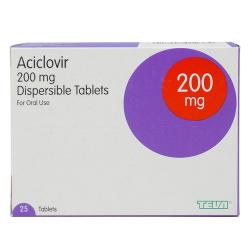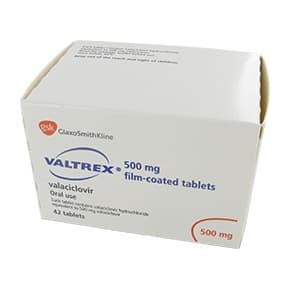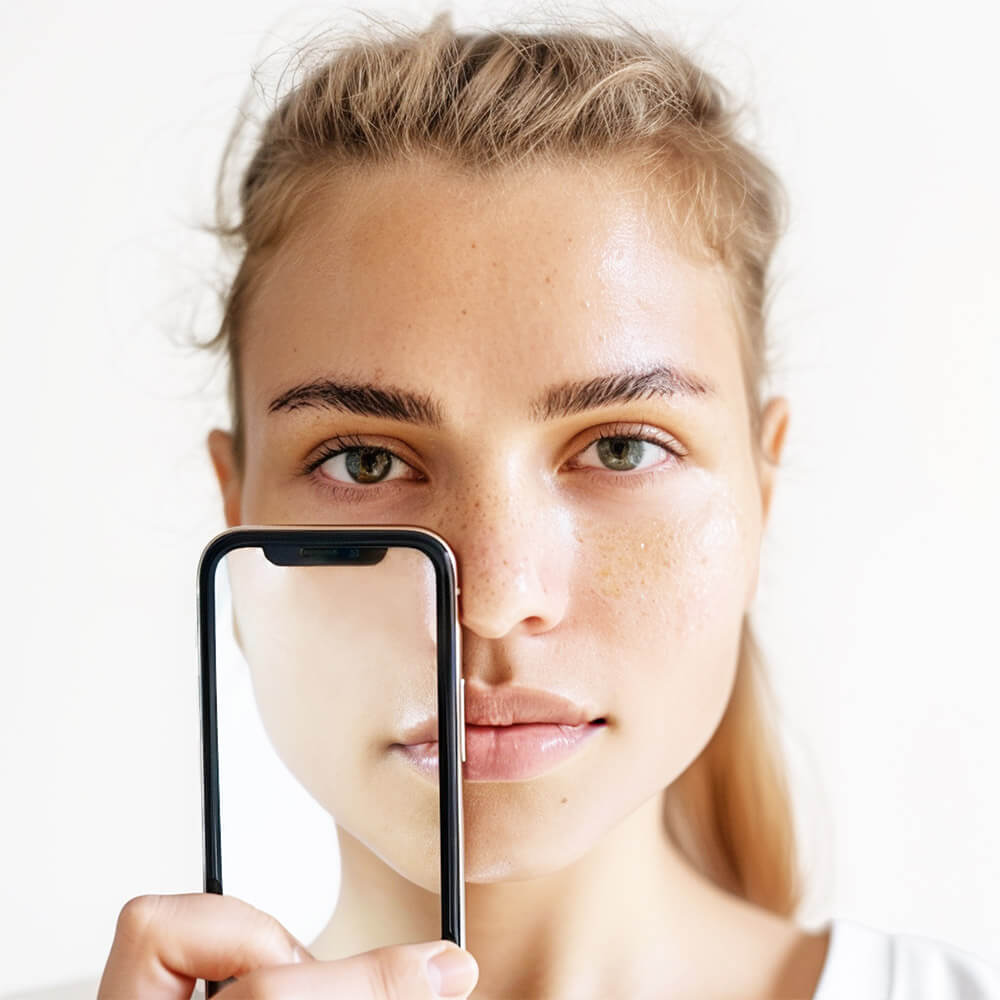- Private & confidential service
- Genuine medication
- All-inclusive service - No hidden fees
- Next day delivery
Cold Sores
Start your consultation

- Reduces symptoms
- Quickens recovery time
- Genital herpes, cold sores and shingles

- Improves recovery time
- Reduces length of outbreak
- Treats genital herpes, cold sores and shingles

- Reduces symptoms in 2 days
- Lessen outbreak duration
- For genital herpes, cold sores and shingles

- Identify and treat skin conditions
- Convenient from your home
- Results in 1 working day
Cold Sores
Cold sores are caused by a strain of the herpes simplex virus (HSV-1). It is estimated that as many as 70% of the UK population have this strain of herpes. An outbreak can be triggered, forming fluid-filled blisters usually around the mouth area. Whilst there is no cure for the herpes virus, cold sores are completely manageable with the right antiviral treatment. You can purchase Aciclovir and Valtrex for the treatment of cold sores, here at HealthExpress.
Topics
What is a cold sore?
Cold sores (herpes labialis) are a common and contagious infection that cause small fluid-filled blisters, normally on the lips or around the mouth. They can also appear anywhere on the face, including the chin, cheeks and nose as well as the inside of the nostrils or inside the mouth. A small minority of individuals find that herpes simplex virus (HSV-1) can appear anywhere over the body, such as the fingers.
When you initially become infected with herpes simplex virus, symptoms aren't always noticeable but most will find the first outbreak occurring within 20 days. Outbreaks generally last between a few days and 2 weeks. The rest of the time, there are no symptoms; this is known as being "dormant".
In order to successfully diagnose cold sores a healthcare professional will simply examine the cold sore. Occasionally, they may decide to take a swab from them but this isn't usually required.
Will I have cold sores for life?
Yes. The virus called herpes simplex causes cold sores, and the virus stays within your body for the entirety of your life. This is the same for all herpes viruses.
This doesn't mean you will have continual cold sores or blisters, but the virus will lay dormant for the majority of time. You may find certain triggers prompt an outbreak, and over time these tend to become easier to handle.
It is possible to be just a carrier of the herpes simplex virus. This means you will never experience an outbreak but you may pass it onto others.This is a phenomenon known as asymptomatic shedding, however this is much less common in cold sores than it is in genital herpes. It is also possible to experience one outbreak and never have any others in the future because your body has efficiently created the antibodies to fight off the virus on the first outbreak.
What causes cold sores?
The strain of herpes simplex virus that causes cold sores is the type 1 strain (HSV-1). Type 2 (herpes simplex virus type 2, HSV-2) causes genital herpes. Both result in similar symptoms, and one can also cause the other (typically through oral sex).
The virus targets individual nerve cells and travels up to the 'ganglion' (a group of nerve cells) where it will remain dormant the vast majority of the time as our body effectively fights off any outbreaks. Blisters begin to form when this virus begins to multiply and reaches the surface of the skin.
Are cold sores contagious?
Cold sores are highly contagious and can be transmitted through skin-to-skin contact typically from kissing but can be transmitted through sharing appliances and items such as toothbrushes, razorblades and kitchen utensils. The risk of getting cold sores through shared items is quite low, however, you may wish to take additional precautions. It is also possible to contract cold sores from oral sex from an individual with genital herpes.
Cold sores are contagious from the moment you first feel the tingling or any other signs of a blister forming. They will continue to be contagious right up until the cold sore has completely healed.
What triggers cold sores?
Pinpointing a trigger can certainly help subdue cold sore bouts in the future. An outbreak is most likely to occur when you’re unwell or stressed, as your immune system is less equipped to fight off the virus.
Some triggers for a cold sores outbreak include:
- tiredness or fatigue
- colds, flus and other illnesses
- changes in the immune system
- injury to the skin
- viral infection or fever
- stress and other psychological factors
- weather (cold weather, winter wind and dry air)
- sunlight exposure
- for women, hormonal changes in her cycle, i.e. menstruation
Some people are more at risk of developing multiple cold sores outbreaks if they are immunocompromised.
What are the symptoms of cold sores?
There are several cold sore stages, as different symptoms develop throughout the outbreak. The early stage of cold sores, also known as the ‘prodromal stage’, occurs 1-2 days before blisters form. You may experience:
- tingling
- itching
- stinging
- soreness
- redness or slightly raised skin in one area
After this stage, blisters will appear on the areas you felt the prodrome symptoms. They are fluid-filled blisters that occur around the lips but can also occur around the nose, cheeks or inside the mouth.
These blisters will eventually weep, releasing clear fluid. This is one of the most contagious and painful stages.
Finally, after the blisters have wept, a scab will form over the sore. It may become quite dry and itchy. Sometimes, blisters can crack and result in some bleeding from the scab. The scab will get smaller over a few days and eventually disappear. Most cold sores should heal within 10 days.
Although most people develop cold sores as a child, some can contract herpes simplex as an adult. If it is your first outbreak of cold sores, you may experience other symptoms including:
- fever
- painful gums
- muscle aches
- swollen lymph nodes
- sore throat
- headache
If symptoms do recur, they most likely occur in the same spot and tend to be less severe after each outbreak. If you notice your cold sore doesn’t heal after 10 days, or your symptoms get worse, you could consult with your doctor.
Are there any complications of cold sores?
Most people will not experience any complications from a cold sores outbreak. However, if you have a weakened immune system or another skin condition, the virus may affect you across the body.
Risk factors include:
- HIV or AIDs
- atopic dermatitis (eczema)
- undergoing cancer treatment
- taking anti-rejection drugs after an organ transplant
- being pregnant or having a newborn
In these cases, cold sores can spread to:
- the fingertips - known as ‘herpes whitlow’
- the eyes - HSV-1 can cause an eye infection (keratitis), and repeated outbreaks can lead to scarring and injury, potentially resulting in vision problems
- widespread areas of skin - where cold sores develop across the body, common in those who have atopic dermatitis and can be serious
Neonatal herpes can also occur if a parent with cold sores kisses their baby, or the mother has a herpes sore on her breast and their baby contracts HSV-1 from breastfeeding. Babies have particularly weak immune systems in their first 4 weeks of life, so it’s vital that if you have an outbreak of cold sores to prevent your newborn from having any contact with the virus.
As these groups of people are more at risk, it is recommended that they undergo suppression therapy for herpes simplex virus under the supervision of their doctor. This typically involves taking long-term courses of antiviral medication to prevent outbreaks of cold sores.
How do you treat cold sores?
The way to treat a cold sores outbreak is by using antiviral medicines as soon as you feel the prodromal symptoms (tingling and itching). On prescription, you can get Aciclovir (Acyclovir) and Valaciclovir (Valacyclovir) tablets to treat and prevent cold sores outbreaks.
You can also get an antiviral cream over-the-counter containing Aciclovir, usually sold under the brand name Zovirax. It’s important you dab the cream into the sore rather than spreading it around and wash your hands thoroughly afterwards.
There are certain things you can do yourself to alleviate any discomforting cold sore symptoms, and speed up recovery, such as:
- washing your hands frequently, especially after touching your face
- avoiding hot, acidic, salty and spicy foods
- eating soft foods that will not scratch or irritate the area
- a cool compress can relieve itching and pain
- drink plenty of fluids to avoid dehydration
- take paracetamol or ibuprofen to ease any pain or swelling
- use lip balm with 15 SPF or above
It’s also important to not spread the virus whilst you have it by:
- not kissing anyone whilst a cold sore is present
- not giving oral sex whilst a cold sore is present
- limiting sharing items that touch your mouth such as cutlery, towels and cups
- keeping your hands clean
How can I prevent cold sores outbreaks?
The main way to prevent cold sores outbreaks is to understand what triggers them. For instance, if you find that cold weather triggers your cold sores outbreaks, then you should make sure to stay warm and cover your lips from the cold wind.
How do I buy cold sore treatment online?
Here at HealthExpress, you can purchase Aciclovir and Valaciclovir (sold under the brand name Valtrex) tablets online for the treatment of cold sores. These medications are available on prescription-only, so you will be required to complete a quick, confidential medical questionnaire which will be reviewed by one of our registered doctors. Once they have found you are suitable for treatment, your medication will be dispensed and dispatched from our pharmacy with free, next-day delivery.
3 simple steps to get you started







